Last week Salon writer Katie Engelhart asked, “Where are the Women of New Atheism?” Since she couldn’t seem to find many, or mention by name most of those she did acknowledge, we decided to give her a hand by rounding up several leaders in atheism and interviewing them ourselves. (We are taking submissions as they come in; please see the contact information below if you would like to participate!)
Where are the women in atheism? Right here in our organization––and all over in the movement, making a difference as leaders, as volunteers, as members of their communities. Women have been atheists for hundreds of years; they were part of the early secular movement, and feminists such as Elizabeth Cady Stanton were vocal atheists. Today we have vibrant atheist women like Jennifer Michael Hecht, Sikivu Hutchinson, Susan Jacoby, Debbie Goddard, Amanda Marcotte––the list is endless. It’s time to stop asking where the atheist women are and start talking about what all the atheist women are doing.
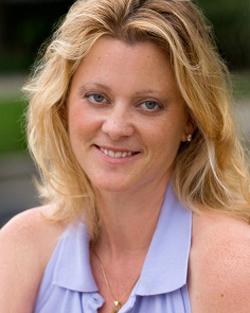
Kim Rippere, Founder and President of Secular Woman
Women atheist leaders are easily found throughout the community. It is the broader community, media, and traditionalists within the atheist community that diminish women atheist leaders. To a large degree prominence is determined by the degree to which acpeople are known. When we are not asked to appear, are not asked for our input (even on a piece supposedly about us), and are sidelined and ignored it is difficult to be or become prominent. Salon merely mirrored the typical media dance in dismissing women in favor of men––even in a story about women.
Elsa Roberts, Vice President of Secular Woman
Women are all over atheism. Yes, our numbers are smaller than men’s, but we have a strong presence with many amazing women being atheist leaders and thinkers, currently and throughout history. Women have very personally motivating reasons to embrace atheism: we’re oppressed based on our gender and sex by religious doctrine. The church has done continuous harm to women; of course there are women in the atheist movement! Just look a little harder, we’re not difficult to find.
It seems to me that almost every year the same article is written, asking where the atheist women leaders are. Then, every year women from the secular community speak up and say, "Look! Here we are and here are other prominent atheist women fighting for social justice and speaking out! We are right under your nose!" And then next the year the same article is written featuring photos of a very specific group of prominent men in the movement and once again asking where we are. Instead of just asking were the atheist women are, without actually looking, perhaps it's time journalists realized that writing articles about the women who are here and are making a very real difference will encourage even more women to come forward. We are only invisible to the society at large because the media chooses not to focus on us.
I think the reason for this is that there is this pervasive idea that in order to rise up and fight against the notion of a God or Gods you have to be a loud, strong man. Women in society are expected to be the quiet, calm, nurturing caretakers. We are taught that women are to be the believers taking care of the home, not the intellectuals behind the podium or up upon the hill of battle. This is a false notion that is embedded in society's gender roles. It's worthy of respect if a man rises up and is loud and proud and rejects religion outright. When a women does the same thing, she is called shrill, or uppity, or angry or even mean and is often disliked for expressing the very same views in the very same loud and proud manner as a man. Until society is ready to respect women's voices as equally as men's voices and is ready to dispel gender stereotypes, I think we are going to continue to see this media preference towards the men in the secular community––unless of course the progressive media is ready to take notice that the women are already here.
(read her full response here)
I think there is a tacit belief that atheism equals rationalism and rationalism is gender neutral and so, ta-dah, no sexism because sexism is so obviously “irrational”! It’s not rationalism per se, but the uses of rationalism which have often been no friend to women. Rational people do irrational things all the time and, unless actively determined to offset the reality of sexism, rational, atheist and secular people remain part of our culture and our culture is sexist.
Monette Richards, Secular Woman Board Member and Activist with NARAL, ACLU, and CFI:
The author should, perhaps, read this article and ask "Where are the atheist women?" because they weren't named in the title, or in the links to their works or in the picture. The title named men. The pictures were of men. Women's works were linked to namelessly. The author quotes Bekiempis, saying, "Let’s reframe. For every mention of Hitchens, counter with a mention of Hecht." Yet, Hitchens was mentioned four times (without counting the picture caption), while Hecht only got in three times. Interview more women. Mention more women by name. Use pictures of atheist women, especially when talking about atheist women. We can, at least, start with the little things?
"For years we believed that men dominated atheist groups because men dominated atheists overall. As an atheist woman with quite a few friends who were atheist women, I was skeptical. In 2011 I launched the American Secular Census partly to learn whether the assumptions we were making about our population had any basis. As it turns out, more than 40 percent of Secular Census registrants are women, and their feedback suggests that we have some work to do to make atheist groups and events feel relevant and welcoming to them. Once we succeed at creating atheist communities that meet a broader set of needs, I expect we'll see many more women participating, leading, and being recognized for their achievements. And isn't this also the case in society at large? An atheist woman's struggle is no different than any other woman's, really."
For years people have been asking, "Where are the women in the atheist movement?" It’s something I wondered, and asked about, when I attended my first national events in 2009. It's one of the reasons I founded a secular charity (which eventually merged with Foundation Beyond Belief in 2011): to meet the needs of people who wanted to do more than discuss religion and attend lecture-style meetings.
“'Where are the women” is a valid question for our movement, but it discounts and ignores all the fantastic women who work and volunteer in the movement every day, especially those women who work for atheist organizations. We are here, working for the movement, right now.
If we want to increase the number of women involved in atheism, let’s celebrate, recognize, and appreciate the outstanding women who are contributing now. This will not only strengthen our movement from the inside, but it will also draw in talented people outside the movement who want to contribute. This goes for all underrepresented demographics, not just women.
It's not that women aren't involved, and it's not that quality women aren't involved. But the very question “where are the women” discounts every woman who is here now.
Teresa MacBain, Executive Director of Humanists of Florida, American Atheists and Recovering from Religion board member, and 2012 American Atheists’ Atheist of the Year award recipient :
As an atheist woman among many atheist women, I'm insulted! Our movement has a large number of female leaders who are changing the landscape of freethought and making our community more diverse. I was honored to be a speaker at the recent Women in Secularism 2 conference, which celebrated the reality of atheist female leaders in the freethought world.
Articles that pose the question asking about a specific demographic should be well researched, and indicate an exhaustion of all avenues. If writers really want to know about the diversity of the atheist community, there's plenty of information and organizations to choose from. Our hard work shouldn't be in vain.
It is difficult to find the time for philosophical discussions when we are spending so much time convincing folks that we are even human. Engaging with those who would legislate away our basic human rights has taken precedence, at least for me. It is a shame that important work has been overlooked and devalued by Ms. Engelhart.
Ophelia Benson, activist, writer, and editor of Butterflies and Wheels:
It's a formula, although by now it's a very stale one, to write an article puzzling over the scarcity of prominent atheist women, while ignoring all or most of the actual prominent atheist women. Where are they, where are they, Katie Engelhart wondered in Salon, but there are a lot of prominent atheist women she could have mentioned but didn't. Atheist women seem to be more scarce than they really are because so many journalists forget their existence. There's even a paragraph in the article in which Engelhart does mention two such women––Hecht and Jacoby––but also suppresses the names of many others whom she links to without naming them. She links to Secular Woman without naming it, she links to Jen McCreight's blog without naming her, she links to the Skepchick group blog without naming it or any of its well-known bloggers, she links to a book I co-wrote but without naming it or me. We're right here! But if no one will mention us, even in the very act of writing an article about our supposed absence, how is anyone ever going to know that?
It is imperative that women of color in the secular humanist community become more visible, accessible, and vocal. It is also crucial that women of color reach out to our communities and work to build bridges of compassion, understanding, and reconciliation.
(From her full response)
It’s okay to run a piece that says, essentially, “Yep, inclusion is still a problem”. Really, it is. Those article don’t advance the situation, but they at least keep it from falling off the radar. What you can’t do–without well-earned criticism–is diagnose the problem as a matter of women not, shall we say, “leaning in” to combat historical inequalities. It didn’t work so well for Sheryl Sandberg, at least among the feminist press; it won’t work here, where so many atheist women identify as feminist.
In both cases, framing the problem this way only adds to the burden of excluded women. It skims over the fact that women are already doing most of the work to fix those inequalities. It elides completely the campaign to push atheist women trying to create change out of the public view. And it treats everyone else involved in the situation as institutions and forces of nature instead of individuals with the agency to do better, to make decisions that actively include women instead of holding up the status quo.
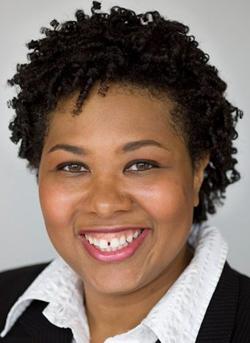
Jamila Bey, Journalist and Activist:
(Bey will be discussing the article in detail on an upcoming episode of her radio show, SPAR with Jamila Bey)
For as long as there have been doubters of religion there have been women who have doubted and spoken out. There is such a thriving movement now that this article goes beyond lazy and sloppy reporting. When you look at most of the major secular organizations––American Atheists, FFRF––they have a woman in the one or two position, and when you branch out and look at activists and writers––Ophelia Benson, Susan Jacoby, Rebecca Watson, hell, me––you cannot deny their existence or their impact; to do so really speaks to the work that has to continue to go on. We’ve got more work to do because many so-called reporters don’t even acknowledge the truth that there are people beyond their immediate experience.
There are plenty of female atheists out there who are writers and activists with large audiences and plenty of fame of their own. The reason they so frequently get overlooked as skeptics of religion, however, is that they're usually known primarily for other work they do, either as scientists, feminists, or social reformists. Their atheism is not the center of their work, and so they often get overlooked in favor of men who make atheism a primary cause.
Religion inherently enables and perpetuates the manipulation, control, and abuse of women and children. We have just a small sampling of the disastrous results of looking to Christianity for guidance and community in the stories of spiritual abuse on the No Longer Quivering website. Having firsthand familiarity with the devastating results of religious idealism inspires and drives me to expose religious-based misogyny and inequity. Over the years of supporting women who are escaping, processing, and healing from the more extreme practices of fundamentalism, I am not only an atheist, but I've become an anti-theist, actively opposed to the teachings of Christianity which leads true believers to accept and even cooperate in their own oppression.
Christine Vyrnon, writer, organizer, library worker
When I created my Hot-For-Jesus Former Fundie blog in 2007, I did so not only because I knew writing creative nonfiction to be therapeutic, but because I had become that person that people from non-conservative Christian backgrounds went to with questions (Who the heck does Michele Bachmann think she is?) and to express Bush-era anger (Who the heck does Michele Bachmann think she is!?). I found myself explaining who they think they are––those believers––and in doing so I found myself expressing not only my own frustrations with my former lifestyle, but the frustration with trying to pound into the head of fellow atheists just a smidgen of empathy. Unfortunately I also found the online atheist world, at the time, to be too reminiscent of the male-dominated conservative Christian world I had left behind. Similar attitudes toward women, different venue (with exceptions). Because the online world can go only so far in caring for the people who have flocked to the atheist communities for “fellowship,” in 2010 I started a Former Fundamentalists support group in Minneapolis/St. Paul, Minnesota, designed to encourage those who have left the faith, are in the process of leaving the faith, or have a more reasonable perspective on faith than they used to. We didn’t sit around and bad-mouth believers, because we all had experienced belief in very sincere ways. I still write when I need to about religion, both satirically and seriously. I am lucky to work in public libraries, which are overwhelmingly run by women––in some ways the largest “secular organization” in the country. Libraries have become my place of refuge, a place that provides community fellowship, encourages diversity, emboldens expanding minds, and allows people to lose, and find, their religion in a safe, non-judgmental environment. And I got here from a free-fall from belief that left family and faith communities behind, in part because of strong voices of women online, in print, in public, who embrace their lack and loss of faith, aren’t afraid to show their anger, and yet practice empathy for those we have left behind.
I mean, come on. You’re asking why the mainstream media doesn’t pay attention to female leaders in the atheist movement… and the answer,'because the mainstream media is totally fucking sexist, with a well-documented history of ignoring women in any situation' isn’t even on the table?
Whatever lifestance or worldview we consider, they all grew out of a certain society and continue to be affected by society. That is the same for atheism and for Humanism as it is for other worldviews. When you live in a society tilted toward men, it is probable that you find something like the same pattern among atheists. Whatever values we may hold, we cannot expect our corner of society to be isolated and above all the rest of it.
In most religions the position of women is clearly described and defined as inferior to that of men, or at least that different roles are meted out prescriptively to men and to women. But even in a secular context we must take care: just because we profess equality doesn't mean we can ignore its implementation.
I am proud to be president of the International Humanist and Ethical Union, but even IHEU waited until 2006 for a female president (although for some years we had a chairman troika and Jane Wynne Wilson was a member of that in the 1990s). In our committees, the working groups, women have always been there, very actively (Netty Klein, Jane Wayne Wilson, Robbi Robson…) and in our Member Organisations around the world (IHEU is an umbrella organisation for Humanist and similar groups) there are many women leading those organisations and in senior positions, from Europe and America to India, Uganda, and Russia. For example, the gender balance at our General Assembly this year – roughly representing Humanist leadership – was near as maybe 1:1.
Even within the most progressive and principled secular organisations, history shows we didn't always get it right, if we were ahead of the curve in some respects we were only just ahead. And we must not be complacent about getting it right today. But if there is a problem with the visibility of women in atheism it is not unique to atheism and it does, I believe, lie in the organisations themselves, so much as in the gaze of the media.
M.A. Melby
(selected excerpts from her full response)
"We’re right here.
To the second point of the article concerning church-like structures among atheists, there is little fear that we will find ourselves powerless in a mock-up of Abrahamic religious female servitude and propriety. Even in the Unitarian-Universalist religious organization that often defines itself as “PostChristian” and has strong historical ties to the Christian tradition and Christian ritual, women currentlymake up over 50% of the clergy and a strong majority of those preparing for ministerial service are women. Among the Humanist Celebrants, judging by the U.S. State directory, over 30% are women.
The board of directors of the America Humanist Association are comprised of about half women and half men; with Rebecca Hale as president.
Let’s contrast that with the church association I grew up in: Women ministers 0%, Women deacons 0%,
Women association presidents 0%.
While the church and church-like organizations that are friendly toward Secular Humanists and atheists may very well soon be actively recruiting men to maintain a diversity of leadership, the church of my childhood allows no one else but men to be in positions of power.
Where’s the parallel? I don’t see it."
To add your comments to the list, please email [email protected].
 Becca Thomas brings to Secular Woman over two decades of experience in advocacy, organization and fund development, as well as a passion for reproductive freedom. She is a former marketing executive and Sunday School teacher. Her journey from theism began in third grade while arguing with a classmate who insisted that if you do not believe in Santa, then you can not believe in God. Thomas continued delving into philosophical questions and became an avid student of world religions. In her late twenties, she made a break from the Church as well as the corporate world, and is now an adamant advocate for human rights. “Humanity would be better served by more compassion and less judgment, the very antithesis of what religion offers,” she says. Thomas will be leading Secular Woman’s project, @AbortTheocracy, a campaign to terminate the intersection of religious power over bodily autonomy and sovereignty by opposing religious influence in government.
Becca Thomas brings to Secular Woman over two decades of experience in advocacy, organization and fund development, as well as a passion for reproductive freedom. She is a former marketing executive and Sunday School teacher. Her journey from theism began in third grade while arguing with a classmate who insisted that if you do not believe in Santa, then you can not believe in God. Thomas continued delving into philosophical questions and became an avid student of world religions. In her late twenties, she made a break from the Church as well as the corporate world, and is now an adamant advocate for human rights. “Humanity would be better served by more compassion and less judgment, the very antithesis of what religion offers,” she says. Thomas will be leading Secular Woman’s project, @AbortTheocracy, a campaign to terminate the intersection of religious power over bodily autonomy and sovereignty by opposing religious influence in government.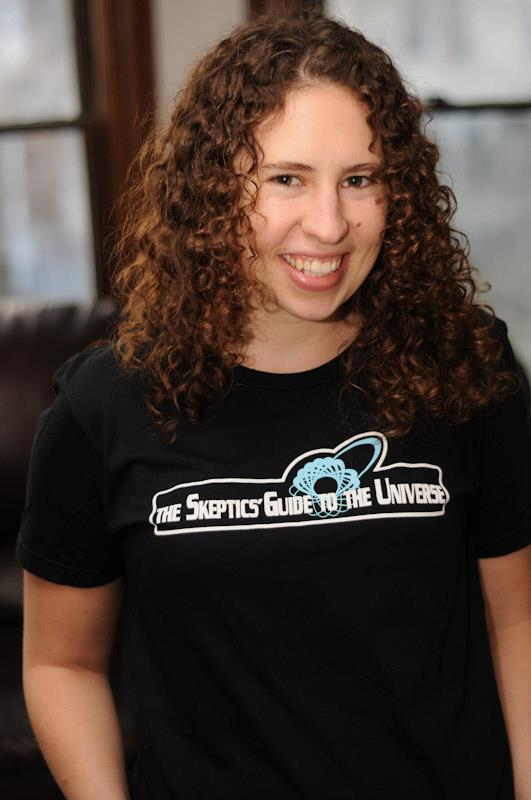 Writer and editor Julia Burke became a feminist at the age of twelve, when she visited her cousin, a law student, and found Susan J. Douglas’s Where the Girls Are: Growing Up Female with the Mass Media on her bookshelf and asked to borrow it. Atheism took a little longer; raised liberal-Protestant but exposed at a tender age to the fundamentalist beliefs of a reborn Christian relative, Burke was fascinated by faith but disturbed by its implications. She avidly researched several religions throughout her teen and college years before realizing that “none of the above” was not only a viable option but the only choice that made sense. While working as assistant editor at the Center for Inquiry she came to know and admire many prominent figures in the secular community, and became interested in the intersection between skepticism, secularism, and social justice. She joined Secular Woman in the fall of 2012.
Writer and editor Julia Burke became a feminist at the age of twelve, when she visited her cousin, a law student, and found Susan J. Douglas’s Where the Girls Are: Growing Up Female with the Mass Media on her bookshelf and asked to borrow it. Atheism took a little longer; raised liberal-Protestant but exposed at a tender age to the fundamentalist beliefs of a reborn Christian relative, Burke was fascinated by faith but disturbed by its implications. She avidly researched several religions throughout her teen and college years before realizing that “none of the above” was not only a viable option but the only choice that made sense. While working as assistant editor at the Center for Inquiry she came to know and admire many prominent figures in the secular community, and became interested in the intersection between skepticism, secularism, and social justice. She joined Secular Woman in the fall of 2012.
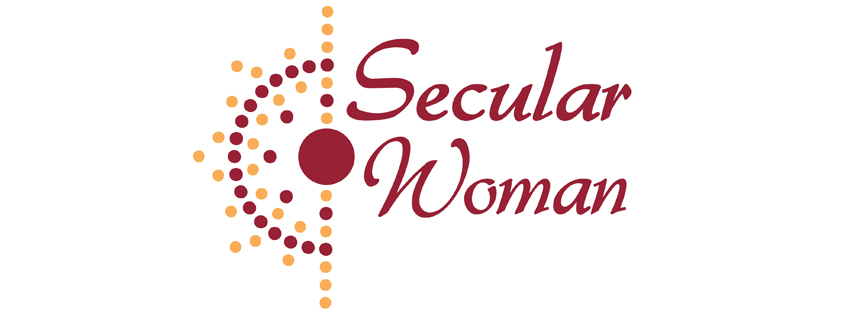
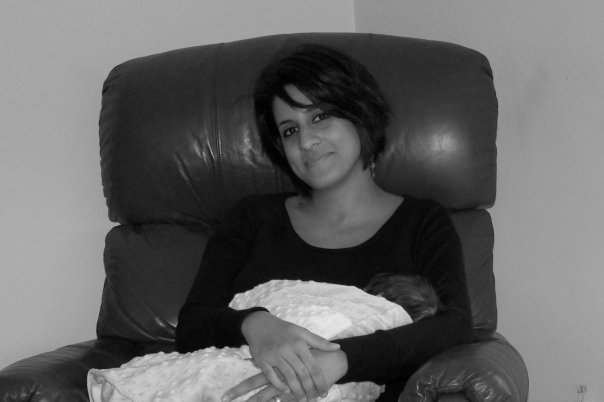

 Kimberly Veal,
Kimberly Veal, 